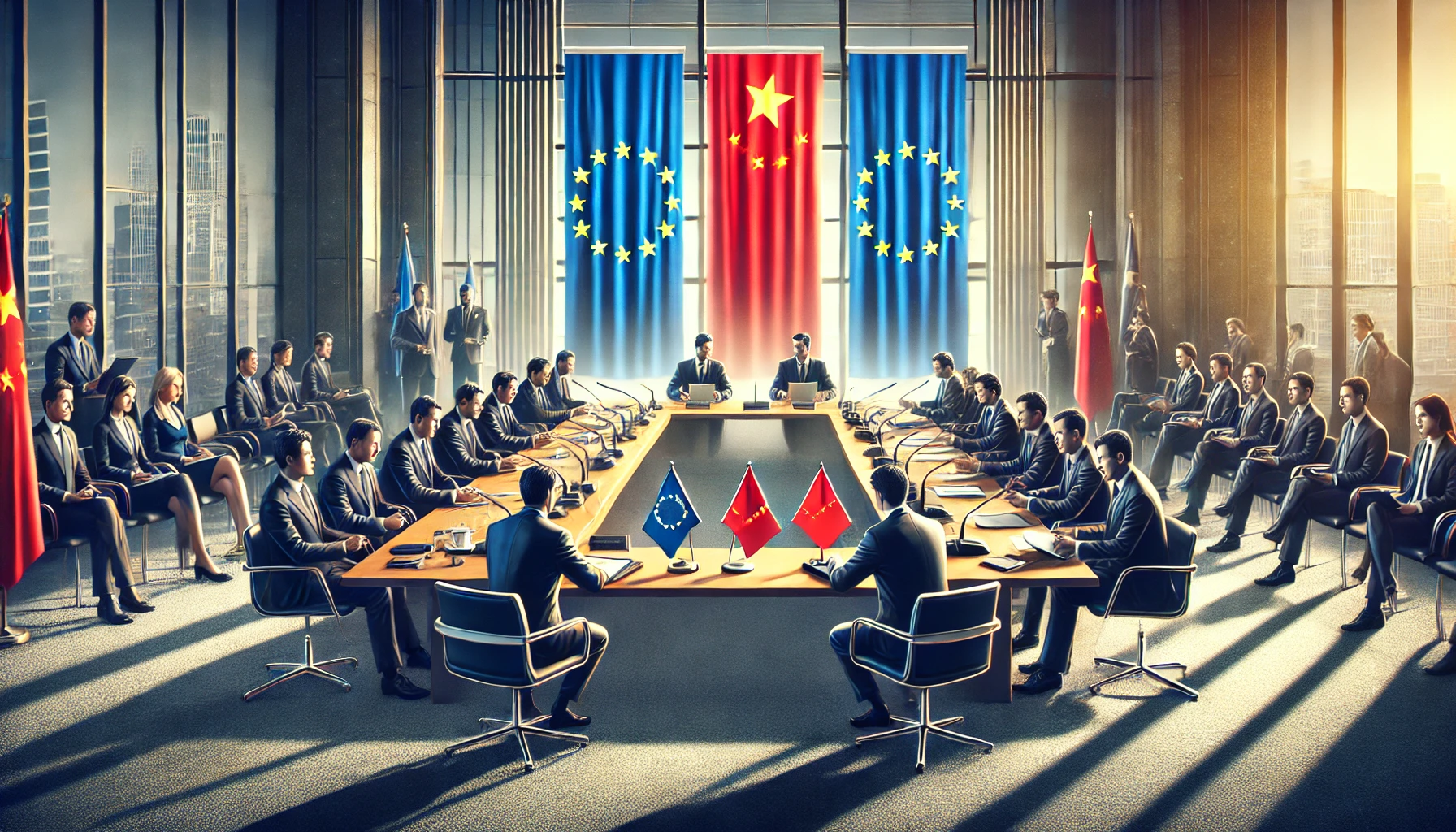
In a recent development, China has called on the European Union (EU) to retract its provisional decision to impose significant tariffs on Chinese electric vehicles (EVs). The appeal follows an agreement between the two parties to initiate fresh discussions on the matter, as reported by the Global Times on Sunday. These talks come as a crucial effort to resolve the ongoing dispute over the EU’s anti-subsidy investigation into Chinese EVs.
China’s commerce minister, Wang Wentao, and Valdis Dombrovskis, the executive vice president of the European Commission, have jointly agreed to start discussions aimed at addressing the EU’s concerns regarding alleged subsidies provided to Chinese EV manufacturers. This development was confirmed by Beijing in a statement released on Saturday.
Observers have noted that China is seeking the European Commission’s decision to be overturned by July 4. The country is advocating for adherence to World Trade Organization (WTO) regulations, suggesting that the current tariff imposition might not align with international trade norms.
Key Details on EU’s Tariffs on Chinese EVs
| Aspect | Details |
|---|---|
| Provisional Tariffs | Up to 38.1% |
| Standard Tariffs | 10% |
| Effective Date | July 4 |
| China’s Request | Revoke tariffs |
| Basis of Request | WTO rules compliance |
| Potential Impact | Economic and trade cooperation disruption |
Key Points of the Dispute
- EU Tariffs Imposition: The European Union has announced provisional tariffs of up to 38.1% on imports of Chinese EVs. This decision is set to take effect on July 4 if no resolution is reached through the upcoming discussions.
- Current Tariff Status: In addition to the proposed provisional tariffs, a standard duty of 10% is already in place for imported EVs.
- China’s Position: China views the EU’s tariff decision as an act of protectionism that could potentially violate WTO rules. The country is pushing for the decision to be revoked and is advocating for fair treatment in line with global trade standards.
- Economic Impact: Observers have highlighted that rescinding the tariff decision would benefit both China and the EU. They underscore the significant economic and trade interdependence between the two regions, suggesting that ongoing cooperation is crucial for mutual economic growth.
- Potential Countermeasures: Experts have warned that the EU’s imposition of tariffs could lead to retaliatory actions from China, potentially escalating into a broader trade conflict that would be detrimental to both sides.
The imposition of tariffs on Chinese EVs by the EU comes at a time of growing tension between China and various Western economies over trade practices and market competition. This move has been perceived by China as a direct challenge to its burgeoning EV industry, which has rapidly expanded to become a significant player in the global market.
China’s commerce ministry has strongly criticized the EU’s actions, labeling them as “blatant protectionism.” On June 14, the ministry issued a statement asserting that the EU’s decision could breach WTO rules. The ministry’s stance underscores China’s commitment to defending its interests in the face of what it considers unfair trade practices.
A Chinese official, speaking to CNBC last week, further elaborated on this viewpoint, arguing that the EU’s probe into Chinese EVs was highly selective and not grounded in a credible assessment. The official emphasized that China expects a fair and transparent review process that respects the principles of free trade and competition.
The stakes in this dispute are substantial, given the extensive economic and trade relations between China and the EU. Both regions stand to lose considerably if the situation is not resolved amicably. The potential tariffs could disrupt the flow of Chinese EVs into the European market, affecting not only manufacturers but also consumers who benefit from the competitive pricing of these vehicles.
China’s EV industry has seen remarkable growth in recent years, supported by substantial government subsidies aimed at fostering innovation and reducing carbon emissions. These subsidies have helped Chinese companies to scale rapidly and compete on the global stage. However, the EU’s anti-subsidy investigation alleges that these financial supports give Chinese EVs an unfair advantage in the European market.
The outcome of the upcoming discussions will be closely watched by industry stakeholders and policymakers worldwide. A resolution that aligns with WTO rules and promotes fair competition is seen as essential for maintaining the integrity of global trade systems and fostering continued economic collaboration between China and the EU.
Looking ahead, the negotiations between China and the EU will likely set a precedent for how similar disputes are managed in the future. As the global economy becomes increasingly interconnected, the ability to resolve trade conflicts through dialogue and adherence to international regulations will be critical in sustaining economic growth and stability.
Both China and the EU have a vested interest in finding a mutually acceptable solution that upholds the principles of fair trade and competition. While the path to resolution may be complex, the potential benefits of avoiding a trade war and maintaining robust economic ties provide a compelling incentive for both sides to engage constructively.
In conclusion, the upcoming discussions between China and the EU represent a significant opportunity to address the underlying issues of the tariff dispute and reinforce their commitment to a fair and equitable global trading system. The world will be watching as these two major economic powers navigate this challenging situation.
Related News:
Featured Image courtesy of DALL-E by ChatGPT
